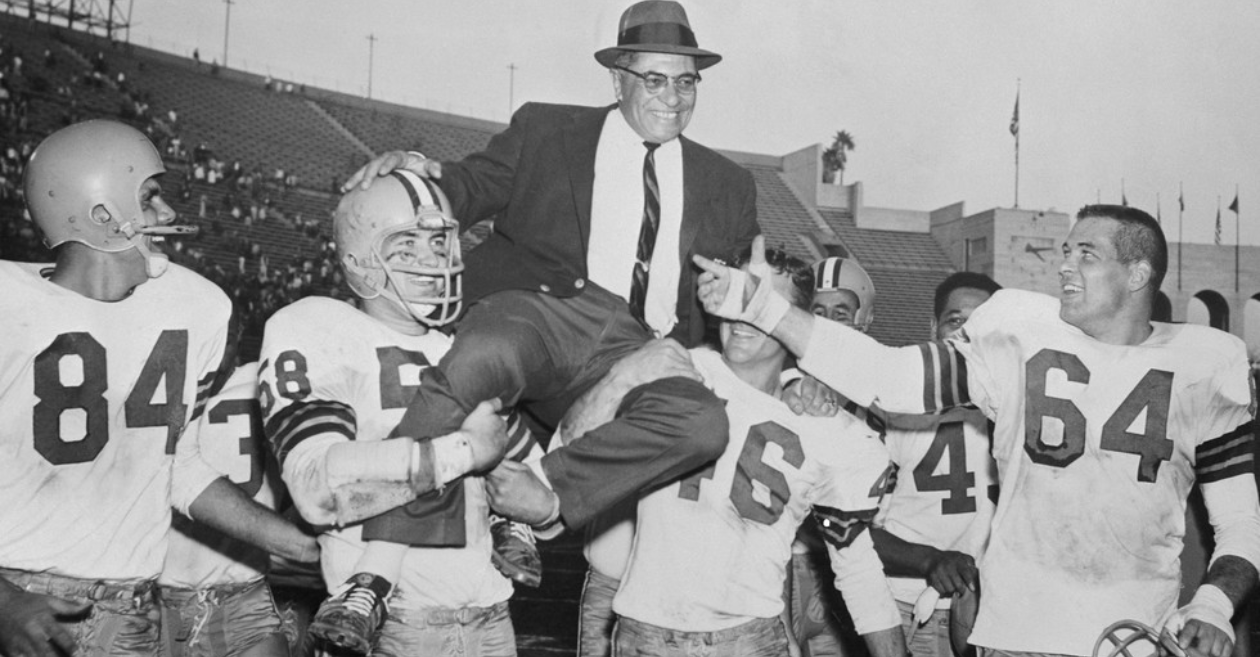


American football, a sport that transcends mere competition, stands as a cultural phenomenon deeply woven into the fabric of the United States. The journey of this exhilarating game is a saga of triumphs, challenges, and enduring legacies. Let's embark on a riveting exploration of American football's captivating history.
People Also Read: The PNC Championship
1. American football traces its roots to the mid-19th century when collegiate teams engaged in rugby-like games. Harvard and McGill University set the stage, paving the way for the sport's evolution.
2. The inaugural intercollegiate football game in 1869 between Rutgers and Princeton marked the genesis of a fierce athletic tradition, propelling the sport into the national spotlight.
The late 19th century witnessed the rise of standardized rules, with Walter Camp hailed as the "Father of American Football." His rulebook innovations laid the foundation for the modern game.
In 1888, the formation of the Intercollegiate Football Association further solidified the sport's structure, fostering a competitive landscape that fueled the growth of American football.
1. The National Football League (NFL) took its first steps in 1920, uniting various regional football teams. Decades later, the NFL would become the heartbeat of American football.
2. A pivotal moment in NFL history came with the 1958 Championship Game, known as "The Greatest Game Ever Played," between the Baltimore Colts and New York Giants, captivating millions and elevating the sport's status.
1. The NFL's rich history is adorned with legendary players like Jim Brown, Jerry Rice, and Tom Brady, whose contributions have left an indelible mark on the sport.
2. The dynasties of teams like the Green Bay Packers, Pittsburgh Steelers, and New England Patriots have defined eras, creating enduring narratives of excellence and resilience.
1. The Super Bowl, an annual sporting extravaganza, emerged in 1967, evolving into a cultural phenomenon. Memorable performances, iconic halftime shows, and unforgettable commercials make it a must-watch event.
2. Specific Super Bowl records showcase the intensity and drama of the competition. Let's take a glance at some notable records:
| Super Bowl Record | Team/Player | Year |
| Most Wins | New England Patriots | 6 |
| Most Touchdown Passes | Joe Montana | 11 |
| Longest Field Goal | Matt Prater (Denver Broncos) | 64 yards |
1. American football's evolution extends beyond the playing field. Innovations like instant replay, the two-point conversion, and the introduction of the Wildcat formation have added layers of excitement.
2. The sport's cultural impact is evident in movies like "Remember the Titans" and "Friday Night Lights," which have further embedded American football in the nation's identity.
As we traverse the remarkable timeline of American football, we encounter not just a sport but a cultural touchstone. From humble beginnings to colossal stadiums, the history of American football is a testament to the nation's love for competition, camaraderie, and the pursuit of gridiron glory. So, whether you're a seasoned fan or a curious newcomer, the journey through American football's history promises a thrilling ride through the heart of the game.
The roots of American football can be traced back to the mid-19th century when collegiate teams engaged in rugby-like games. The inaugural intercollegiate football game in 1869 between Rutgers and Princeton marked the beginning, paving the way for the sport's evolution. Over time, standardized rules and the efforts of figures like Walter Camp led to the establishment of the modern game.
The National Football League (NFL) was formed in 1920, bringing together various regional football teams. The league became the epicenter of American football, and pivotal moments such as the 1958 Championship Game between the Baltimore Colts and New York Giants elevated the sport's status. The NFL's rich history is marked by legendary players and dynasties that have defined eras.
The Super Bowl, initiated in 1967, has become a cultural phenomenon, blending sporting excitement with entertainment. Notable Super Bowl records include the New England Patriots' record for the most wins, Joe Montana's record for the most touchdown passes, and Matt Prater's impressive 64-yard field goal.
American football boasts a roster of legendary players such as Jim Brown, Jerry Rice, and Tom Brady. These icons have left an indelible mark on the sport through their exceptional skills, leadership, and contributions, shaping the narrative of excellence in American football.
American football's evolution extends beyond the game itself. Innovations like instant replay, the two-point conversion, and unique formations like the Wildcat have added layers of excitement. Moreover, the sport's cultural impact is evident in the popularity of movies like "Remember the Titans" and "Friday Night Lights," which further embed American football in the nation's identity.

Let's dive into the exciting life of

Shakur Stevenson isn't just a name; h

Let's talk about Herb Baumeister, a g

Let's meet Sabrina Ionescu, the baske
Trash to treasure: How Google thinks
Spring Fashion Show at the University
Matter of Impact: April updates from
Android Enterprise security delivers
We are not gonna make spamming
Copyright By@TheWebTrends - 2023
BACK TO TOP